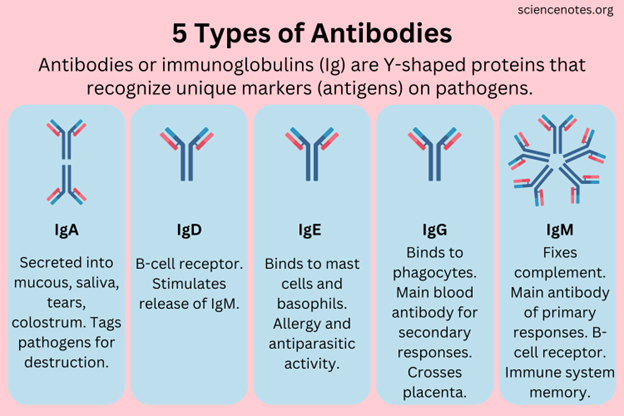Patients with aminoglycoside therapy should be monitored for:
Ototoxicity and nephrotoxicity
ototoxicity and cardiotoxicity
Hepatotoxicity and nephrotoxicity
Cardiotoxicity and hepatotoxicity
The Correct Answer is A
A. Ototoxicity and Nephrotoxicity:
Ototoxicity: Aminoglycosides can damage the inner ear structures, leading to hearing loss and balance issues.
Nephrotoxicity: These drugs can harm the kidneys, potentially causing acute kidney injury or chronic kidney disease. Monitoring kidney function is crucial to prevent renal damage.
B. Ototoxicity and Cardiotoxicity:
Ototoxicity: As mentioned above, aminoglycosides can damage the inner ear, affecting hearing and balance.
Cardiotoxicity: Aminoglycosides primarily affect the ears and kidneys; they do not directly target the heart. Cardiotoxicity is not a common side effect associated with aminoglycosides.
C. Hepatotoxicity and Nephrotoxicity:
Hepatotoxicity: This term refers to liver damage caused by drugs or toxins. Aminoglycosides are not known to cause liver problems; their primary concern is kidney damage.
Nephrotoxicity: As mentioned earlier, aminoglycosides can harm the kidneys, which is a well-known side effect.
D. Cardiotoxicity and Hepatotoxicity:
Cardiotoxicity: This term refers to the toxic effects on the heart, leading to various heart-related issues. Aminoglycosides do not primarily affect the heart; their main concerns are the ears (ototoxicity) and kidneys (nephrotoxicity).
Hepatotoxicity: Aminoglycosides are not typically associated with liver damage. They are primarily metabolized and excreted by the kidneys, which is why kidney monitoring is crucial during their use.
Nursing Test Bank
Naxlex Comprehensive Predictor Exams
Related Questions
Correct Answer is A
Explanation
A. IgG: Immunoglobulin G (IgG) is the most abundant antibody in the bloodstream and represents about 75% of all the antibodies in the body. It provides long-term immunity because it can persist in the bloodstream for a long time. IgG antibodies are involved in secondary immune responses and are capable of crossing the placenta, providing passive immunity to newborns.
B. IgE: Immunoglobulin E (IgE) is associated mainly with allergic reactions. When the body is exposed to an allergen, it triggers the release of IgE, leading to the symptoms of an allergic response, such as sneezing or itching.
C. IgM: Immunoglobulin M (IgM) is the largest antibody and is usually the first antibody produced during an initial exposure to an antigen. It is particularly effective at agglutination (clumping together) of pathogens.
D. IgA: Immunoglobulin A (IgA) is found in high concentrations in mucous membranes, particularly those lining the respiratory passages and gastrointestinal tract. It provides localized defense against pathogens. IgA antibodies are also found in saliva, tears, and breast milk, providing immunity to infants.

Correct Answer is D
Explanation
A. Cushing's Syndrome: This is a condition caused by prolonged exposure to high levels of cortisol, a hormone produced by the adrenal glands. It is not related to kidney transplant or immunosuppressive therapy.
B. Hypersensitivity Reaction Type I: Also known as an immediate hypersensitivity reaction or an allergy, this type of reaction involves the immune system's exaggerated response to an allergen. Symptoms can range from mild to severe and occur quickly after exposure to the allergen. While allergies can cause various symptoms, they do not specifically represent rejection of a transplanted organ.
C. Chronic Graft Versus Host Rejection: This term is commonly associated with bone marrow or stem cell transplants. It occurs when immune cells from the donated tissue recognize the recipient's body as foreign and attack various organs or tissues. This process typically happens over a more extended period and is not directly related to the scenario described.
D. Acute Host Versus Graft Rejection: This occurs when the recipient's immune system recognizes the transplanted organ as foreign and launches an immune response against it. It can happen shortly after transplantation if the recipient's immune system is not adequately suppressed. In this case, stopping immunosuppressive therapy can trigger acute rejection, leading to the failure of the transplanted organ.

Whether you are a student looking to ace your exams or a practicing nurse seeking to enhance your expertise , our nursing education contents will empower you with the confidence and competence to make a difference in the lives of patients and become a respected leader in the healthcare field.
Visit Naxlex, invest in your future and unlock endless possibilities with our unparalleled nursing education contents today
Report Wrong Answer on the Current Question
Do you disagree with the answer? If yes, what is your expected answer? Explain.
Kindly be descriptive with the issue you are facing.
